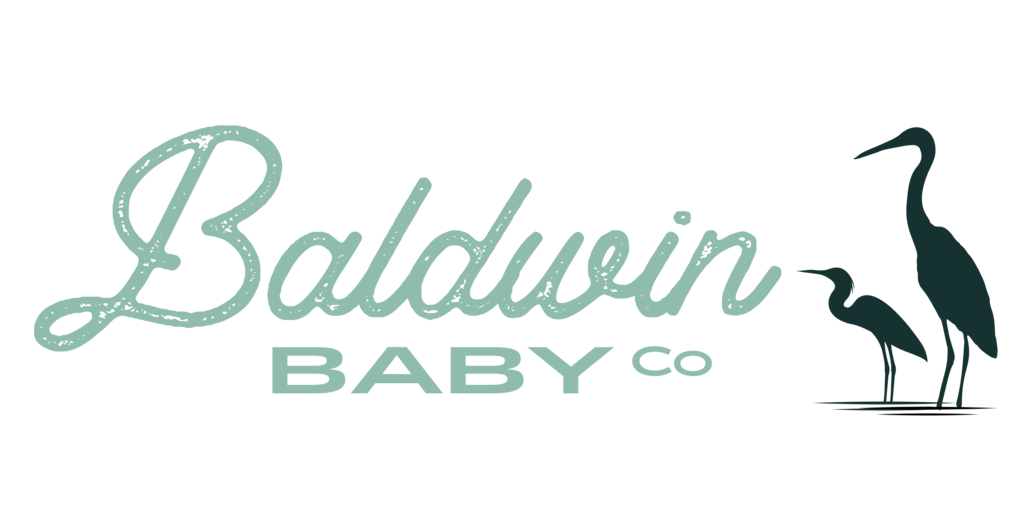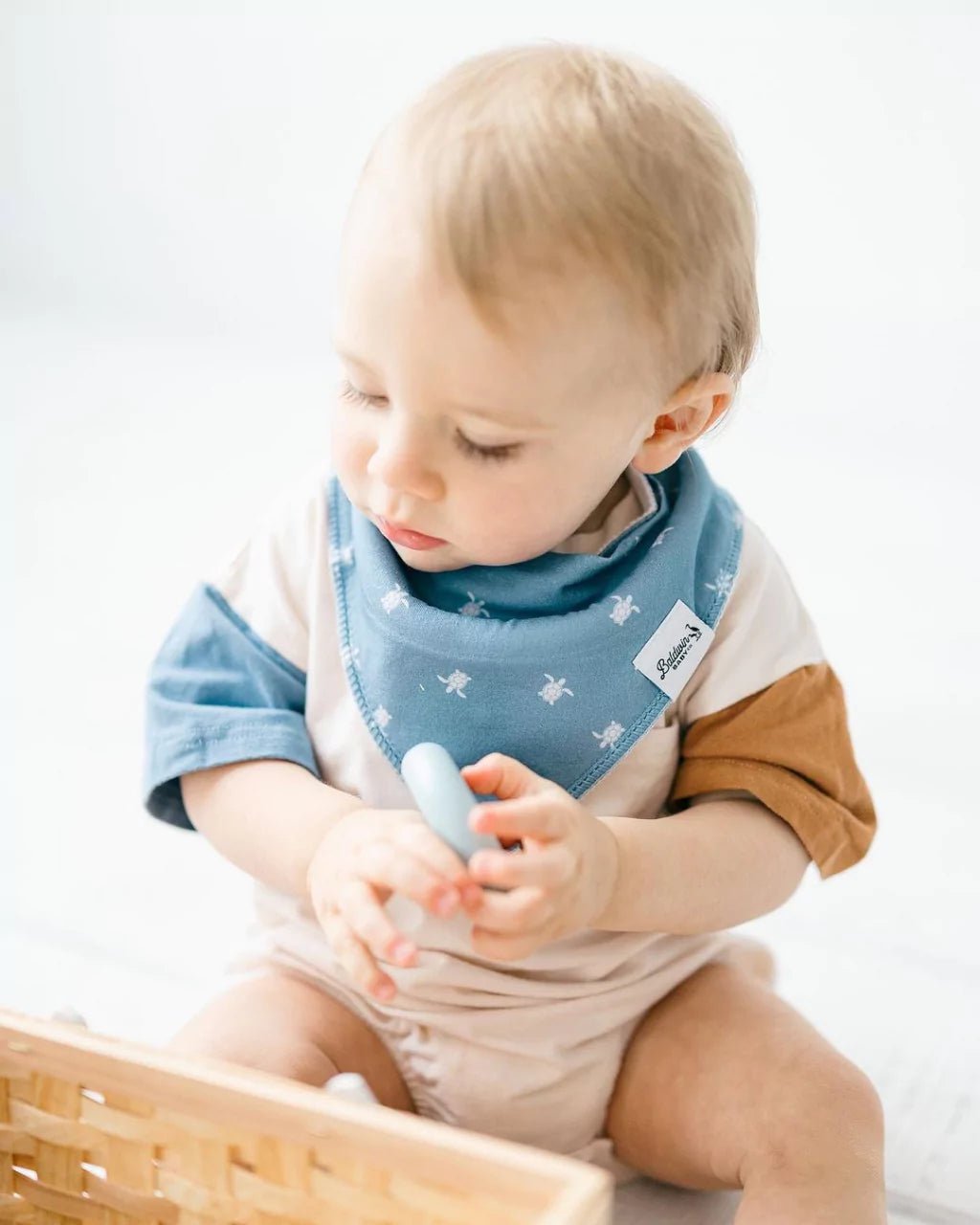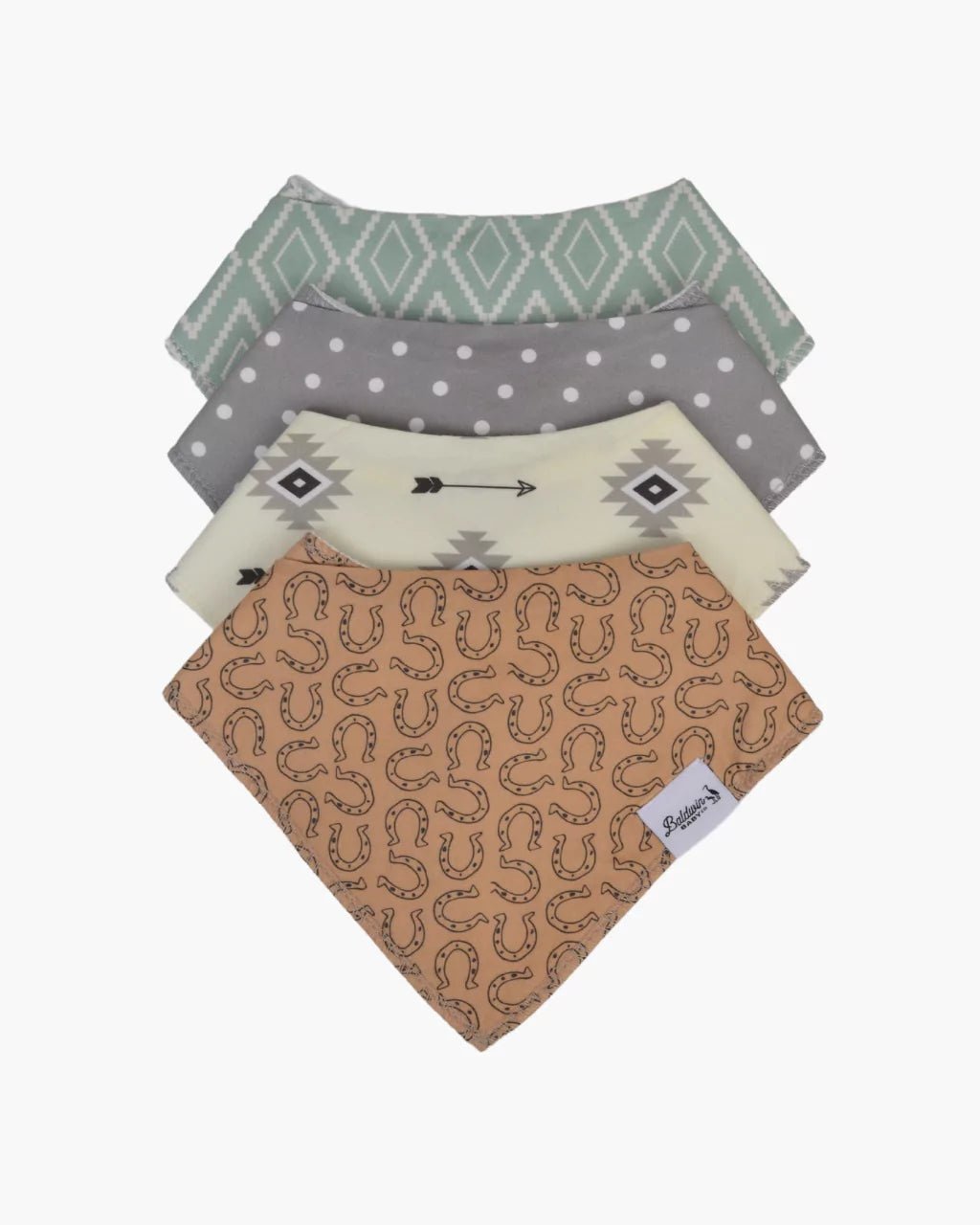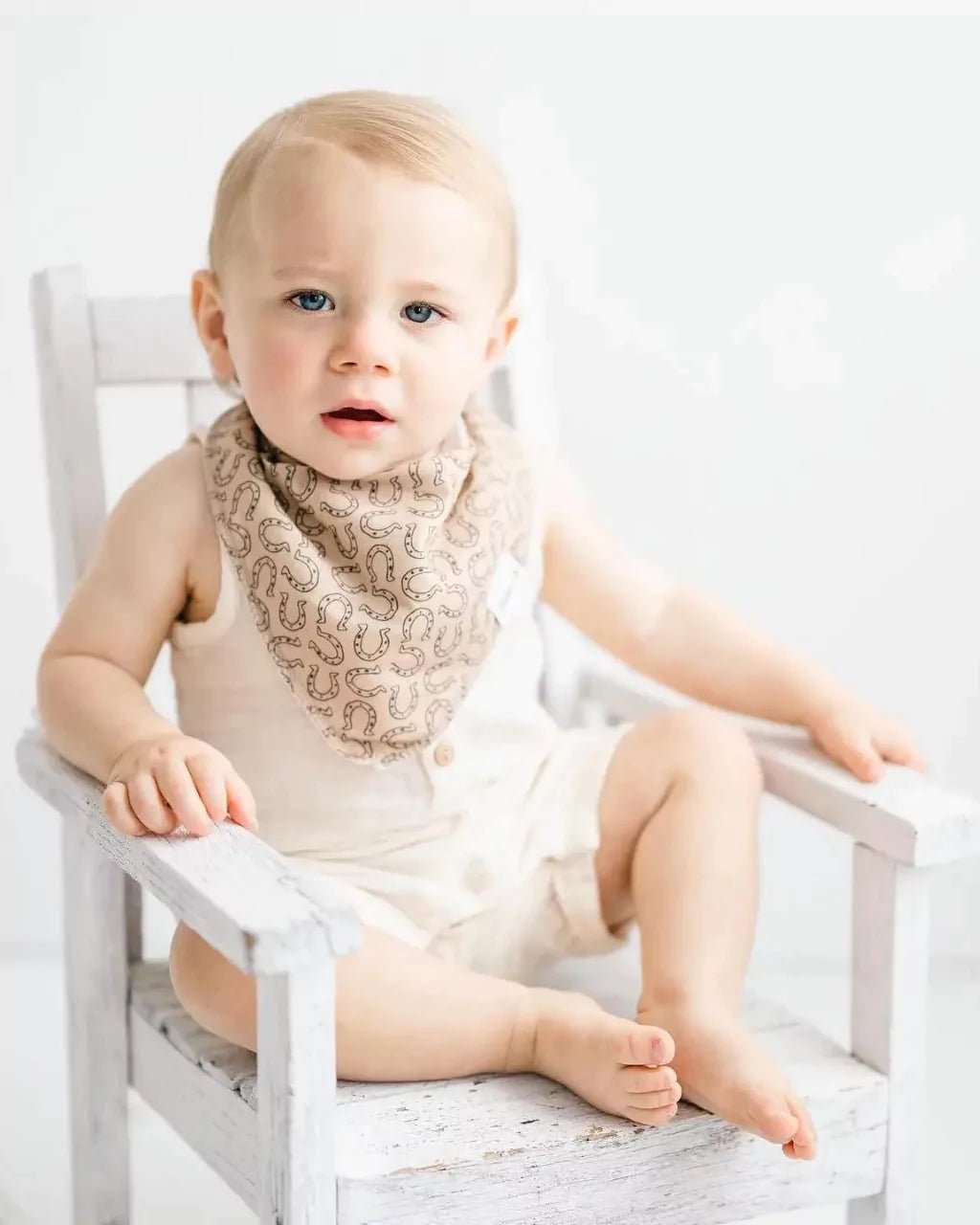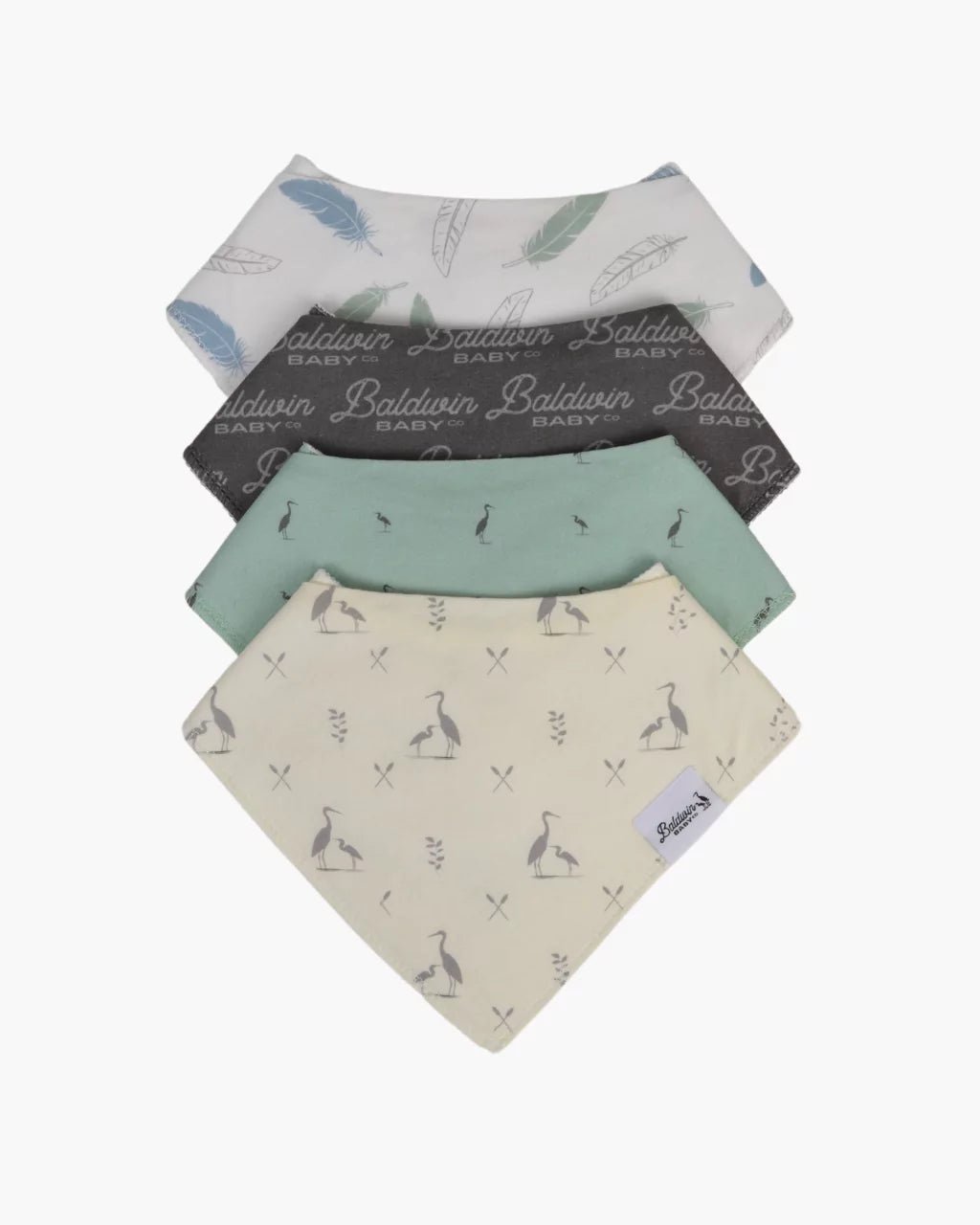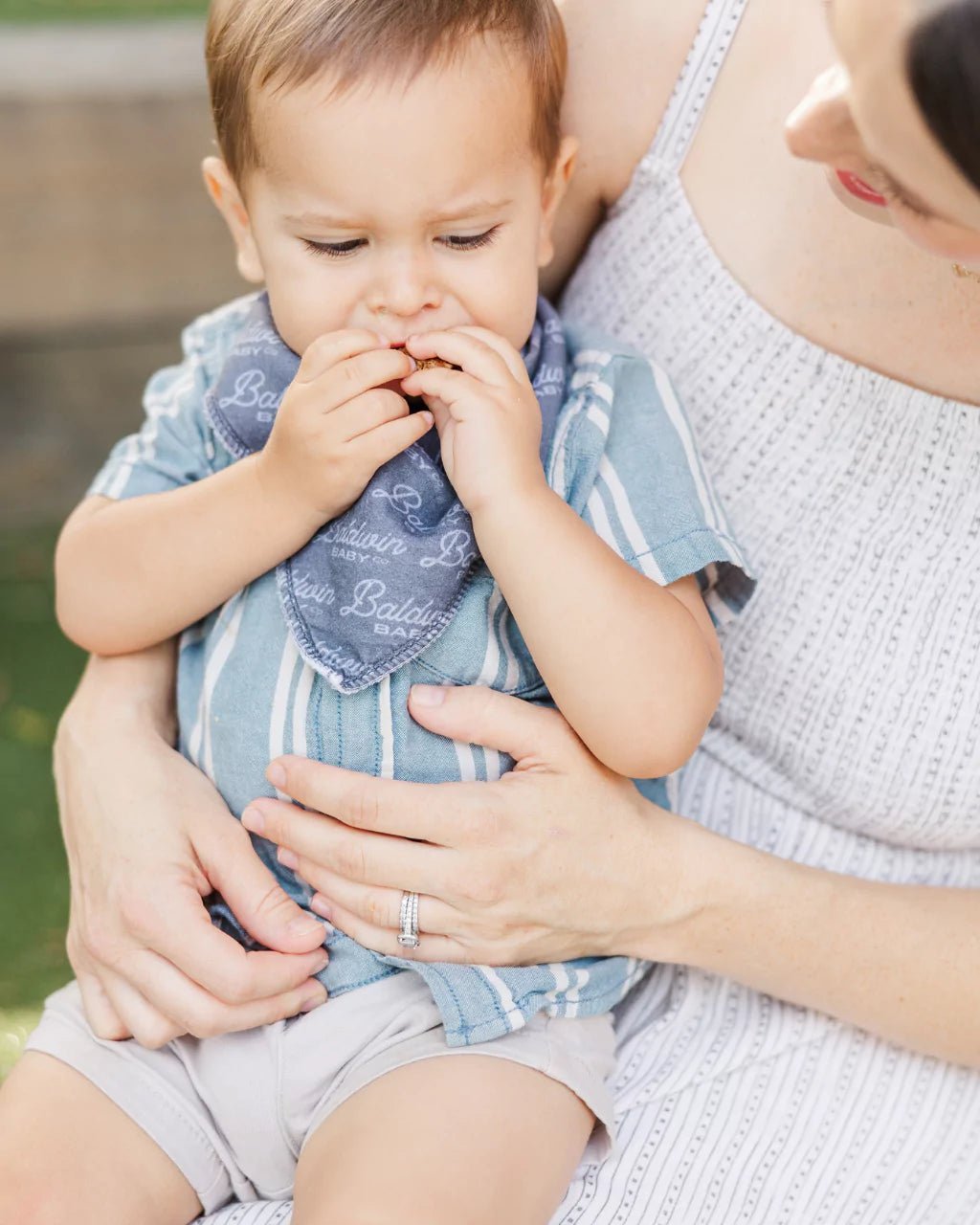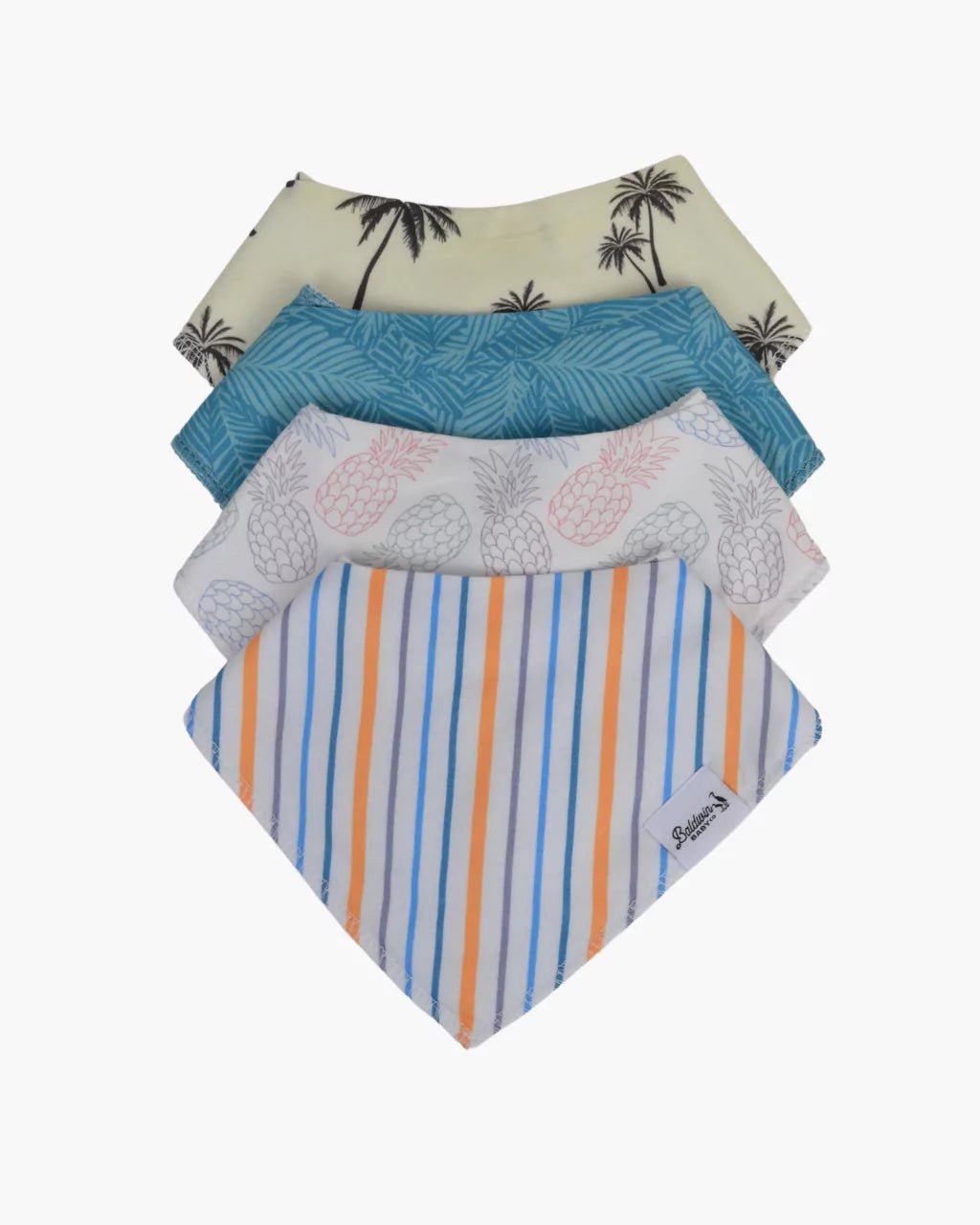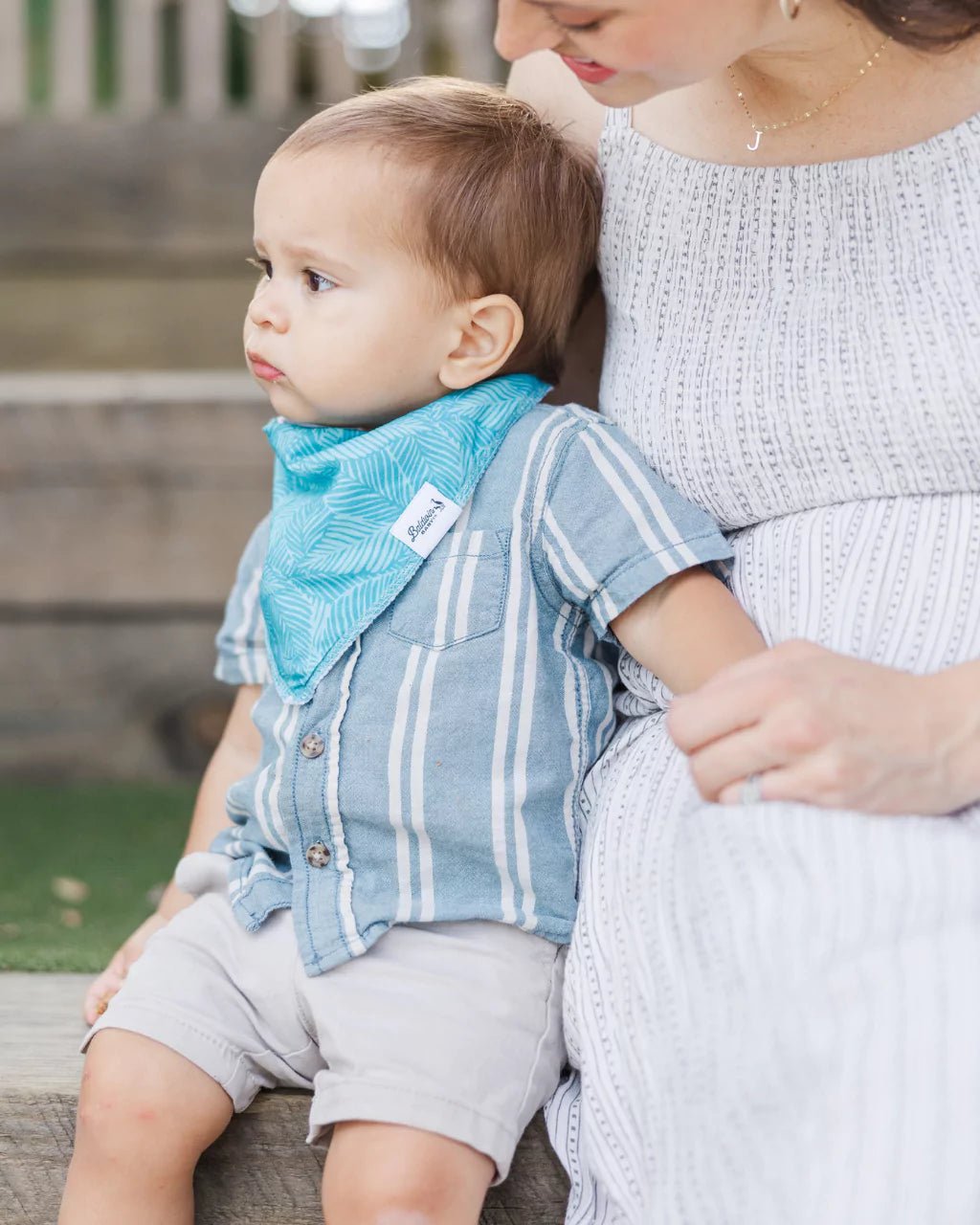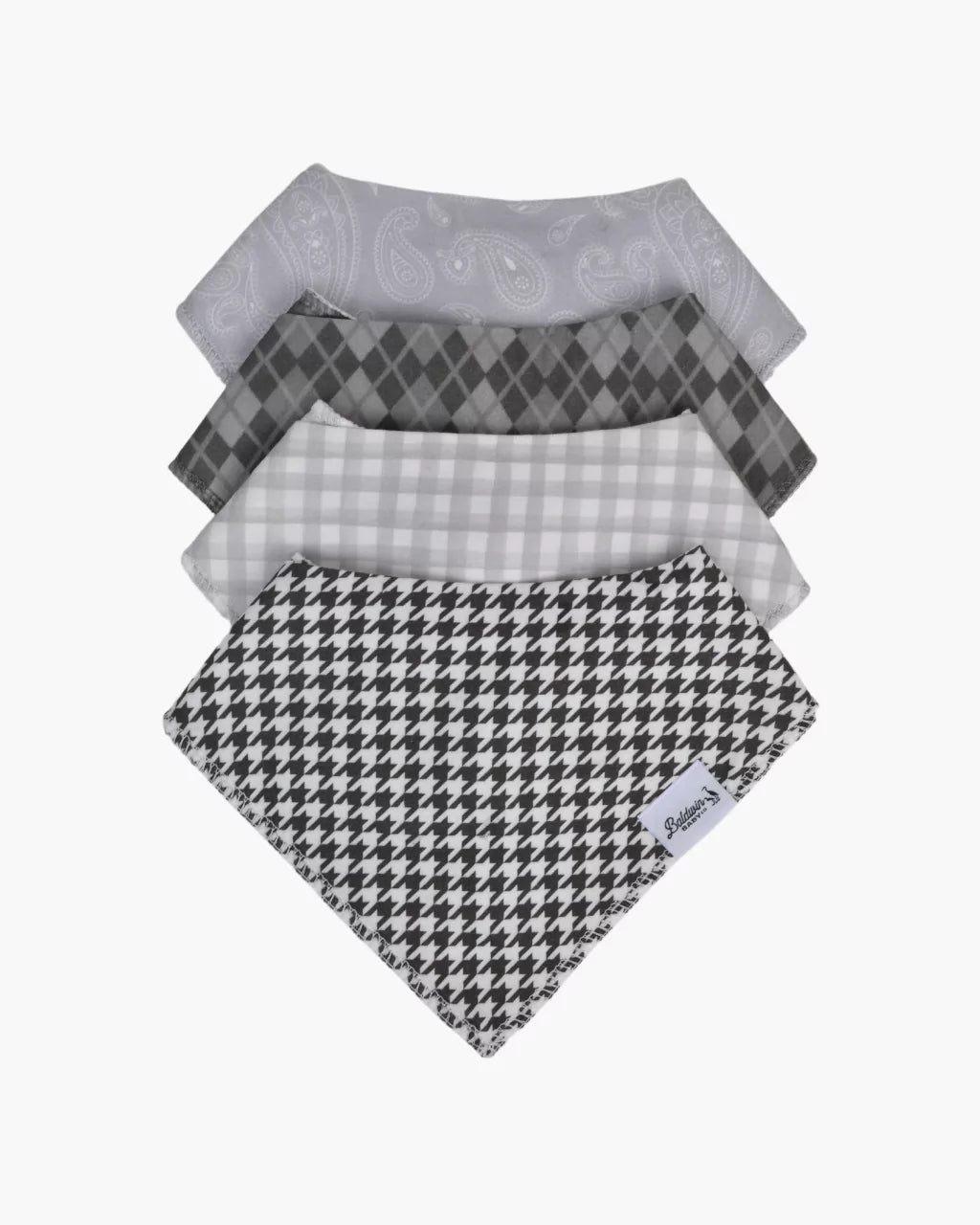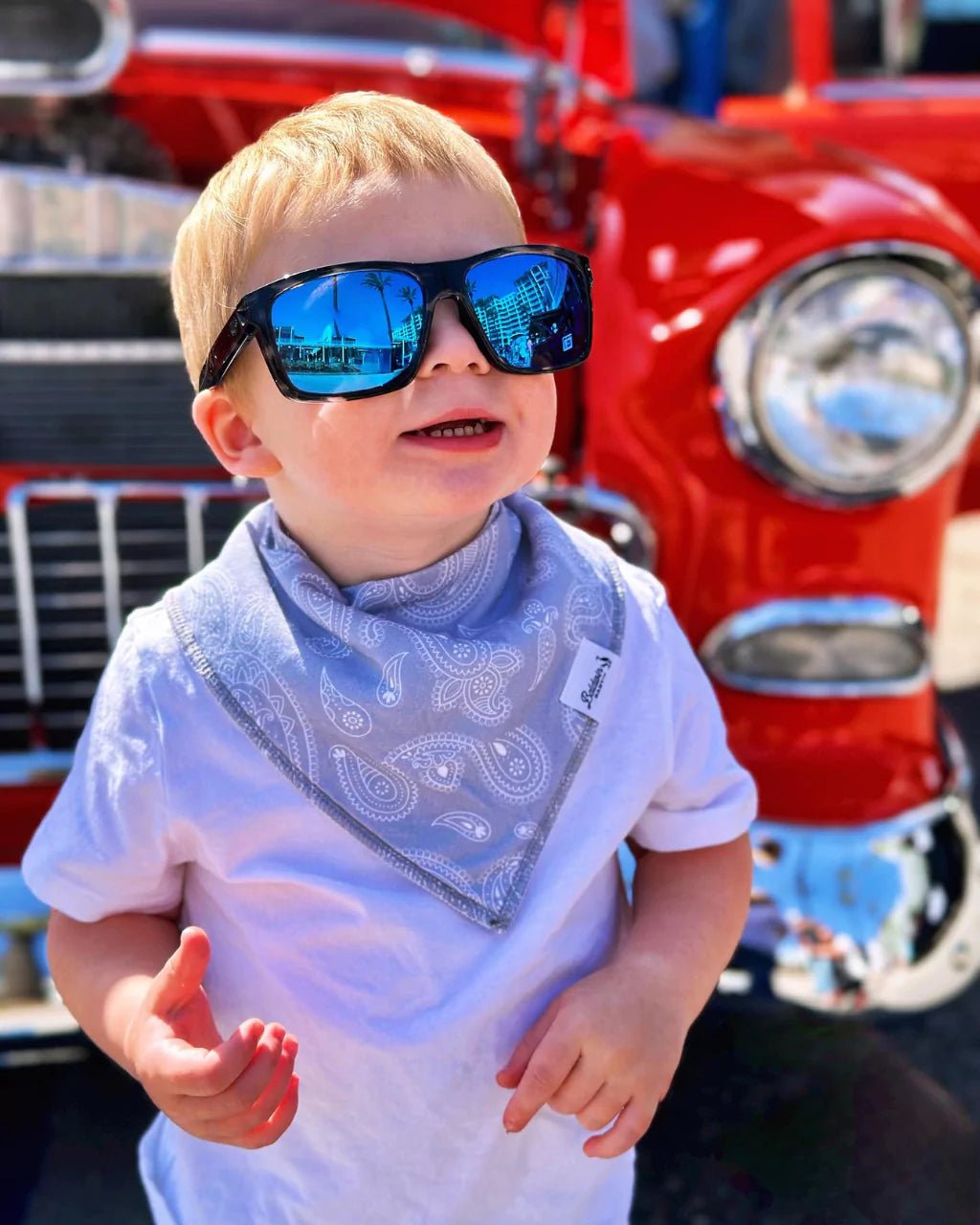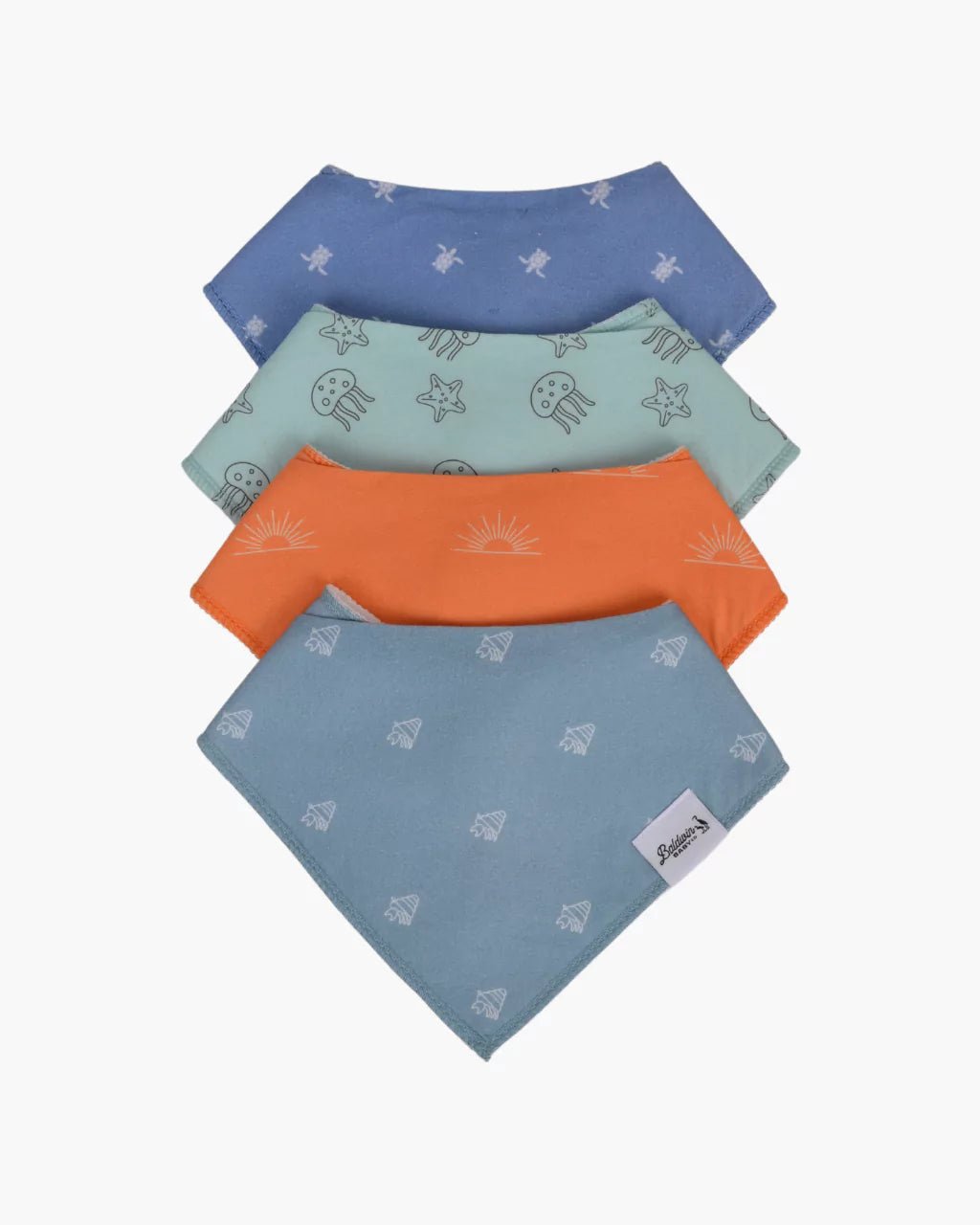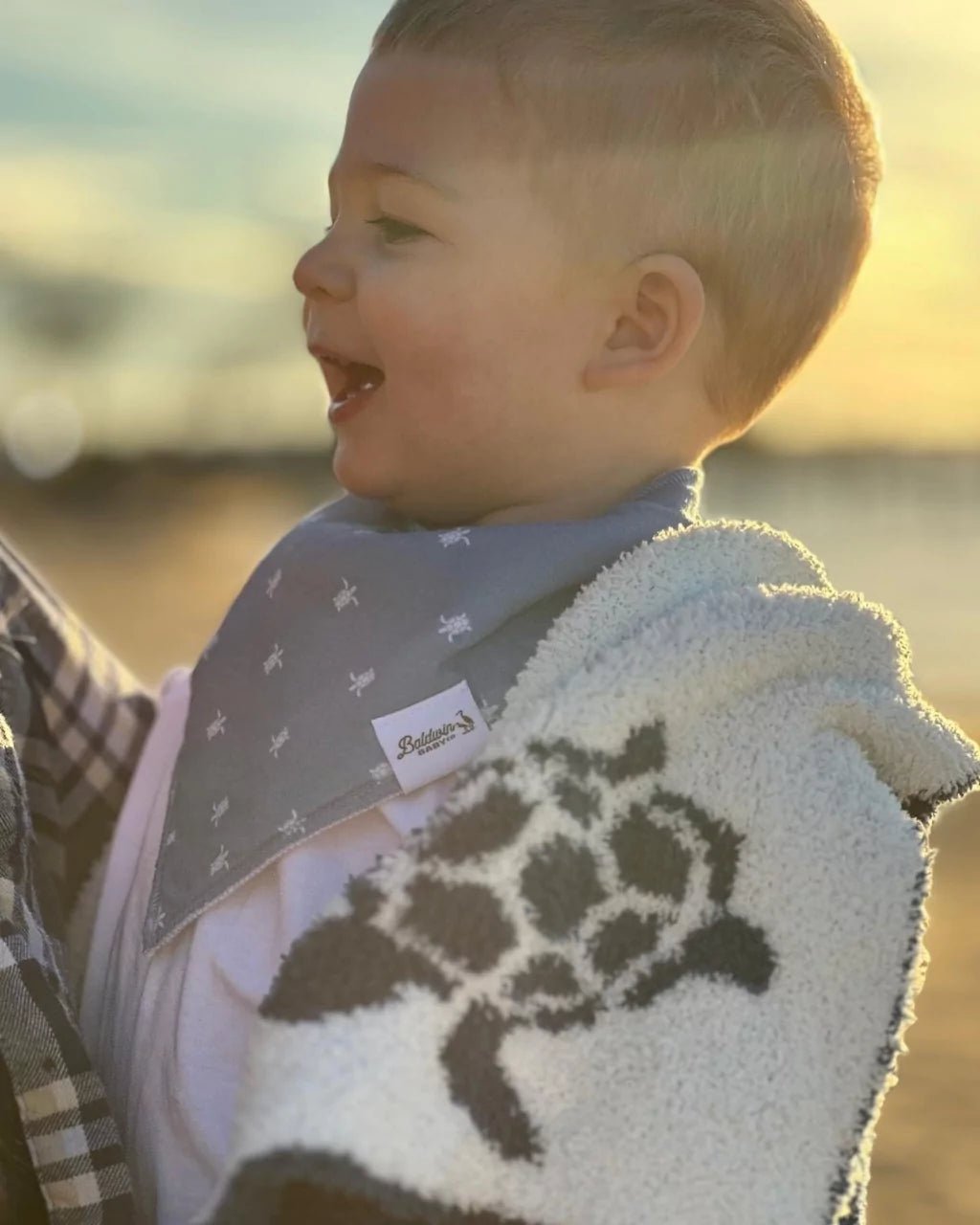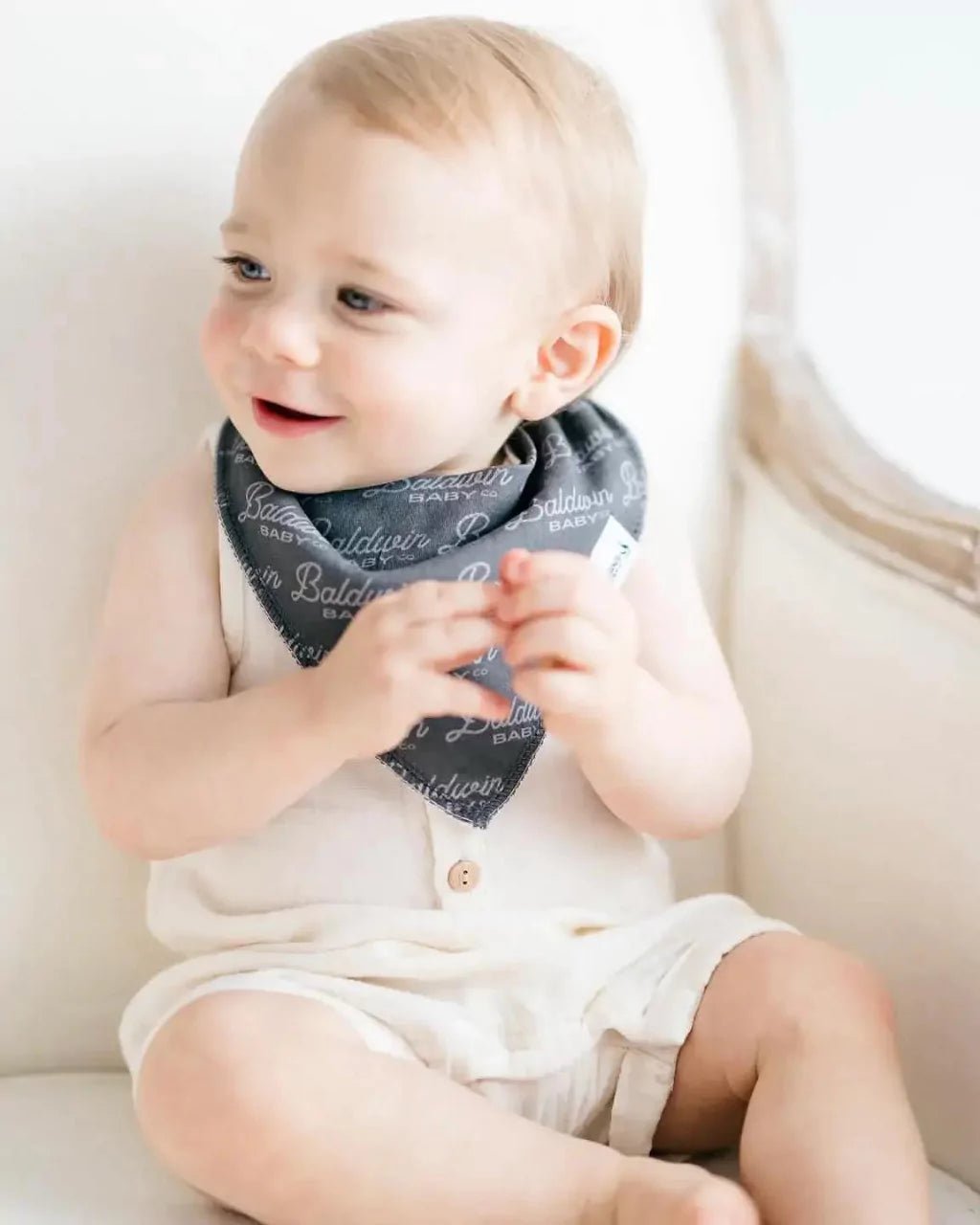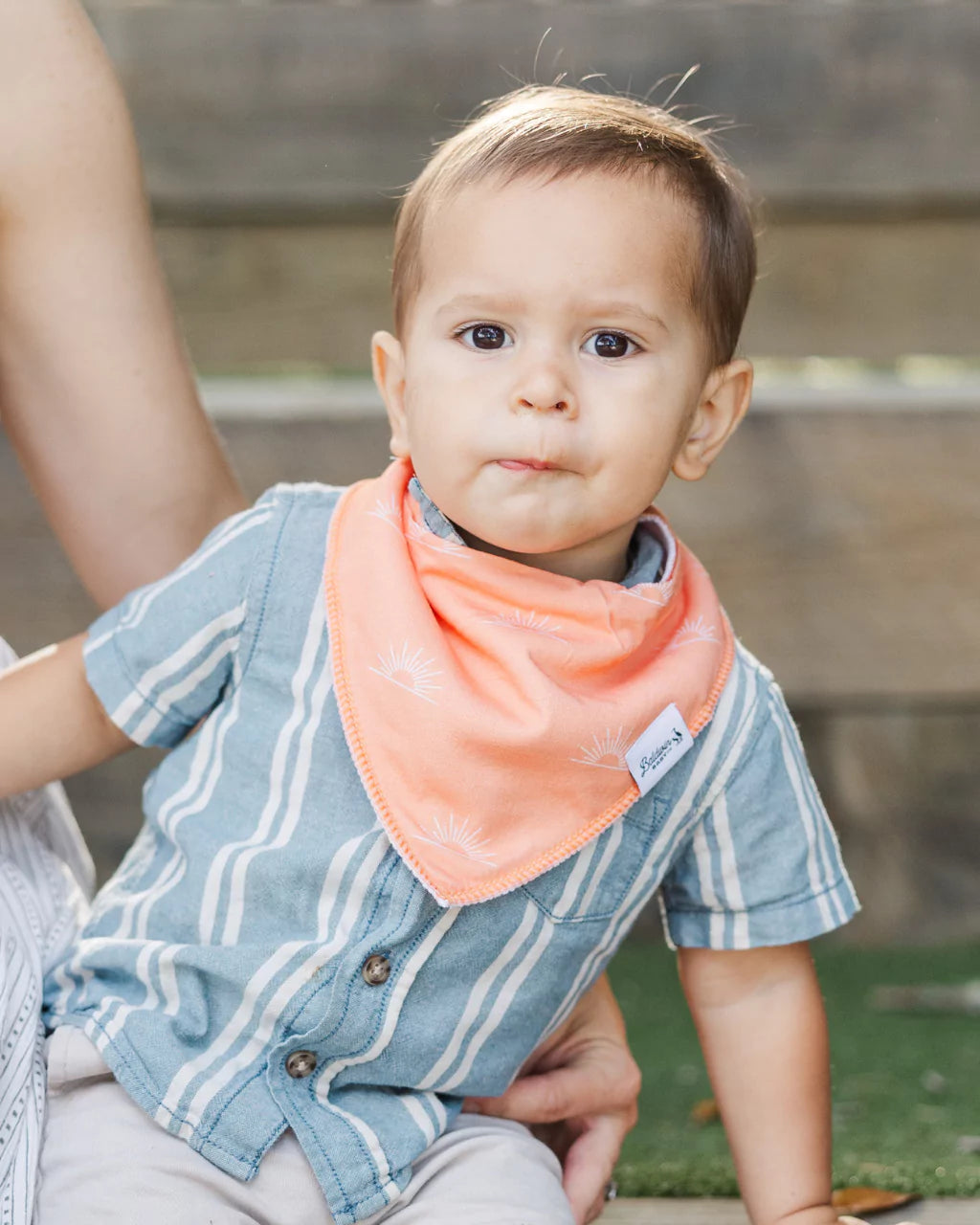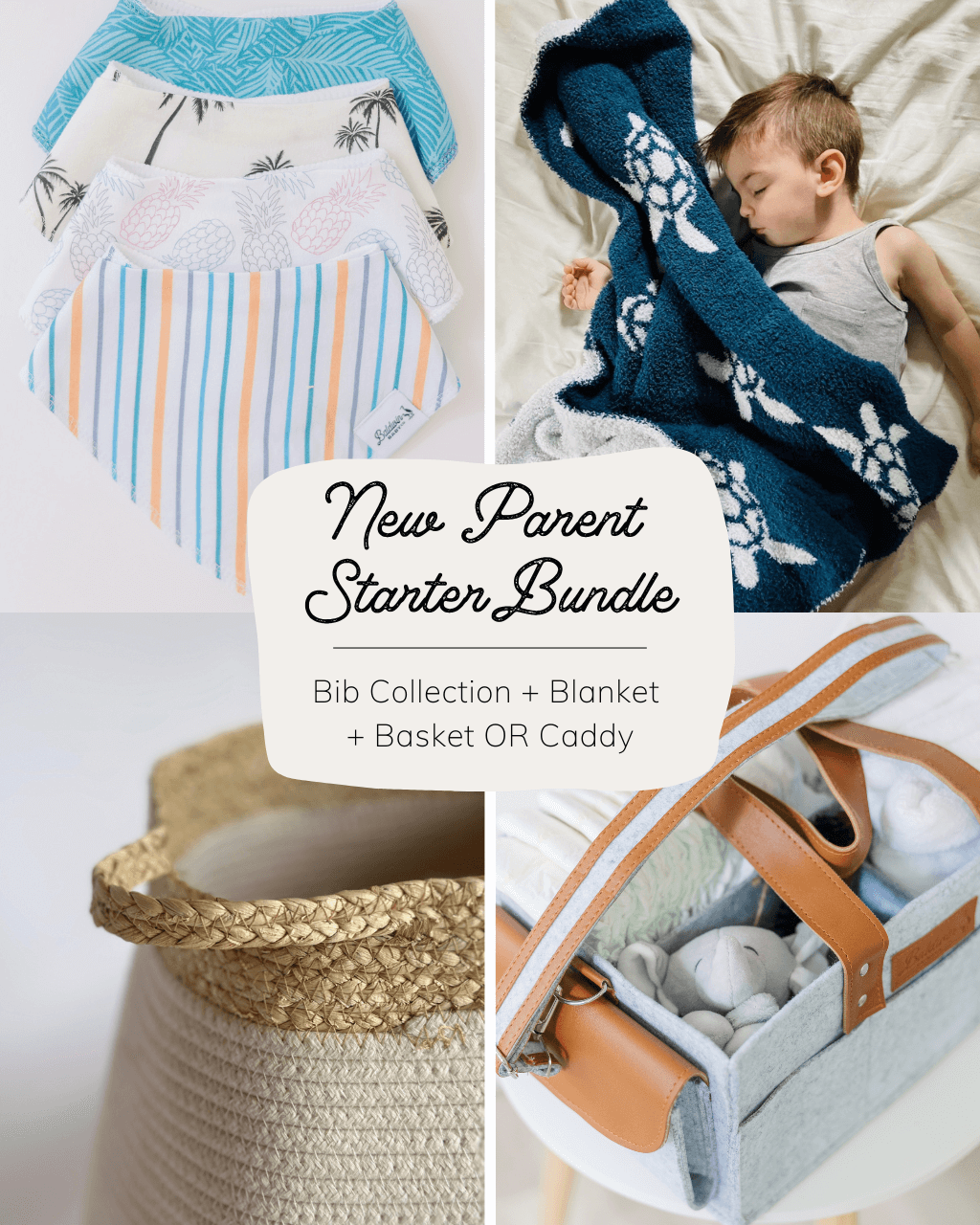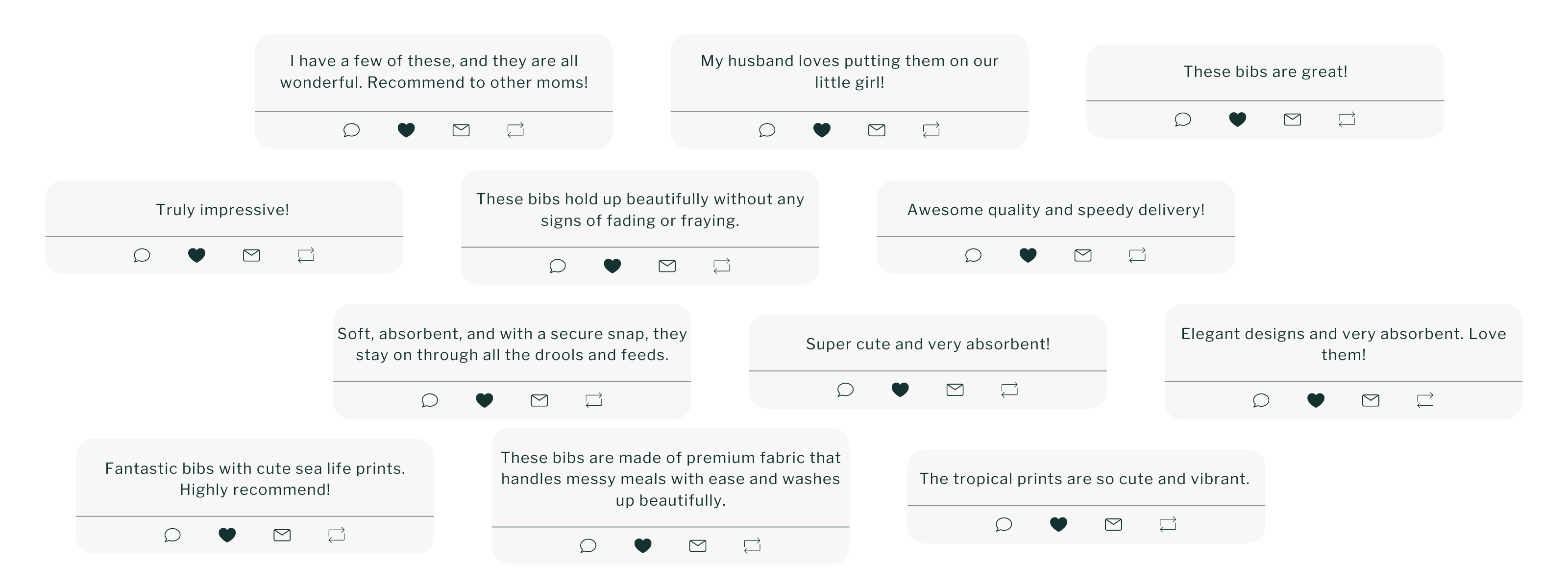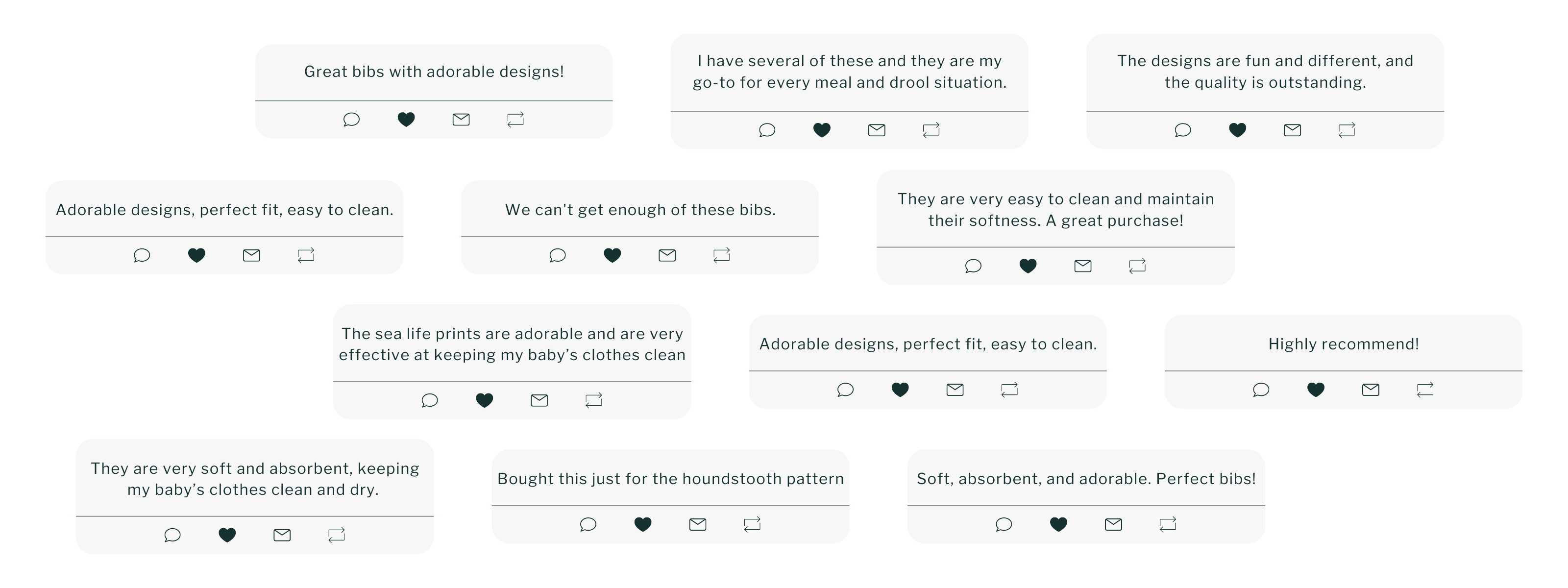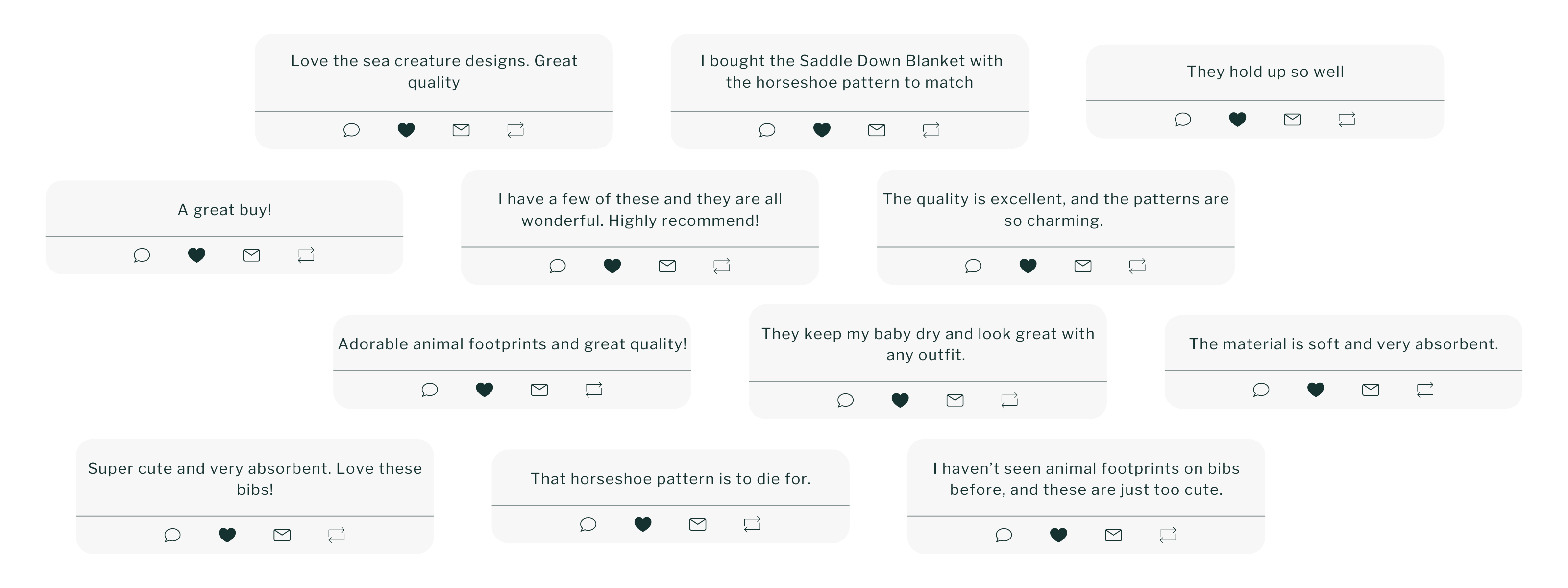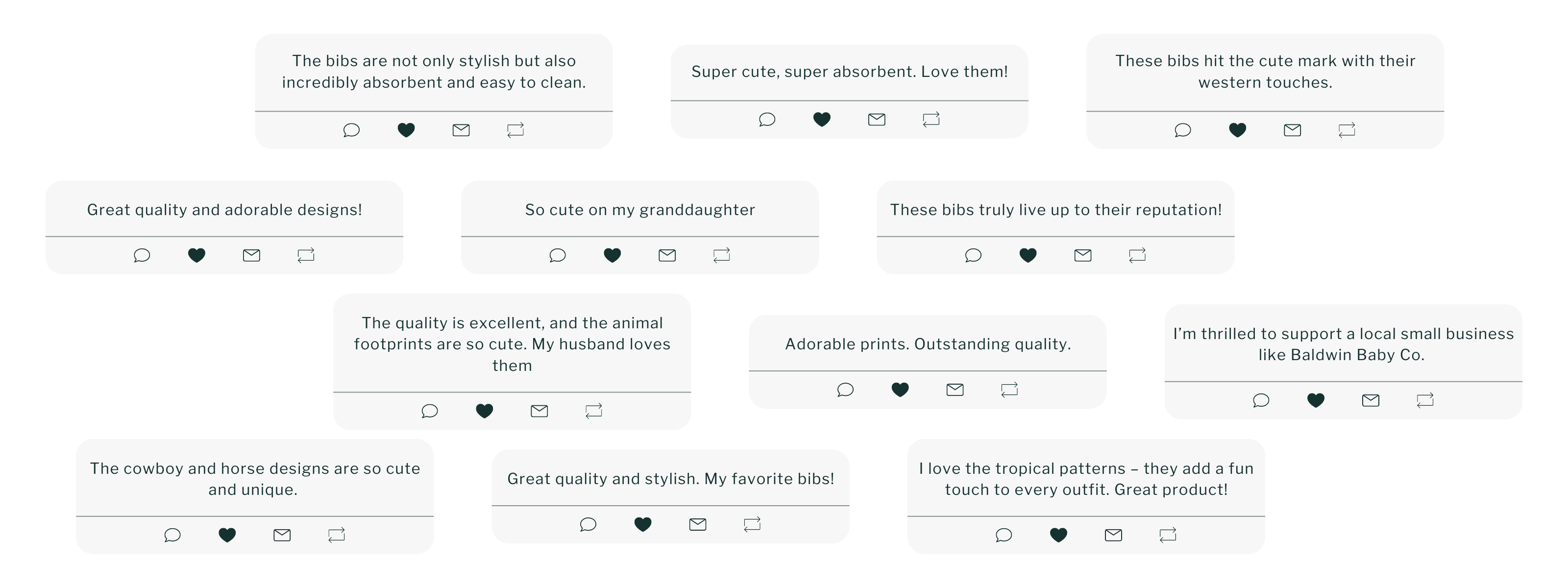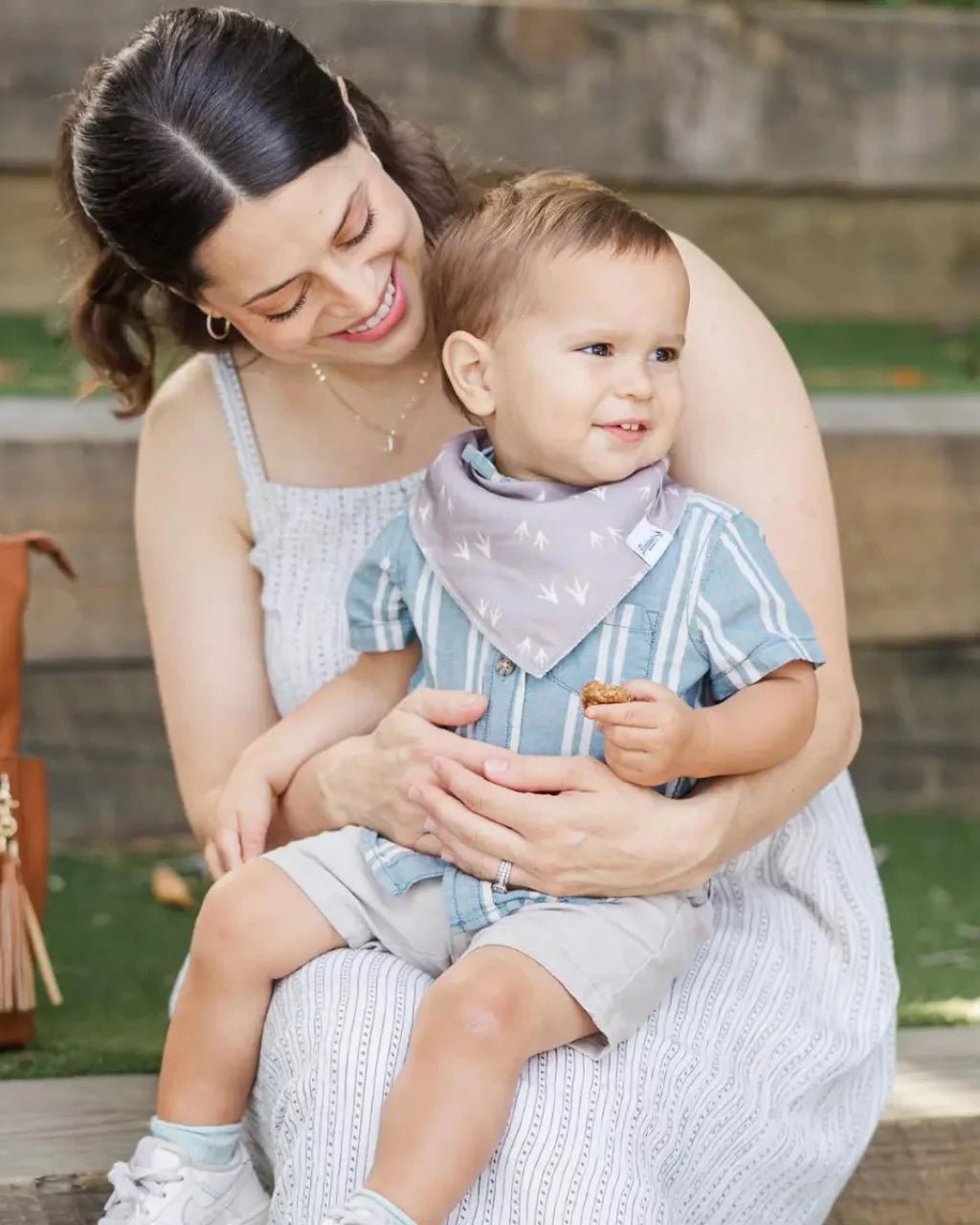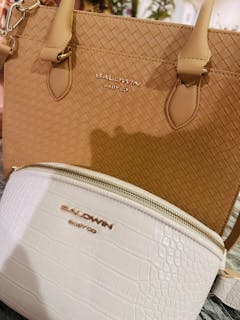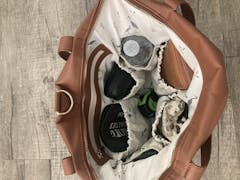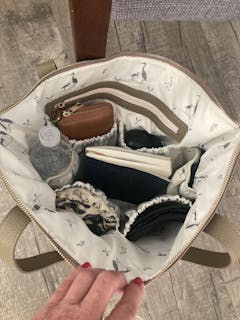I am obsessed! It’s super high quality and cute. Reminds me of a diaper bag Blair Waldorf would have. I also love it just looks like a cute bag and could be used for just me if needed!
High quality, good size, and comfortable. My husband is looking forward to having his own diaper bag!
Perfect to hold everything we’ll need for diaper changes! Material is great quality and compartments are good size.
Love love love. I looked for hours for a mini and stylish diaper bag, and this fit the bill. I wanted something that was able to be crossbody, and ideally vegan leather. This seriously is perfect and great quality with plenty of pockets for organizing.
So nice to send bibs, you can never have enough. These are also extra large which is helpful!
